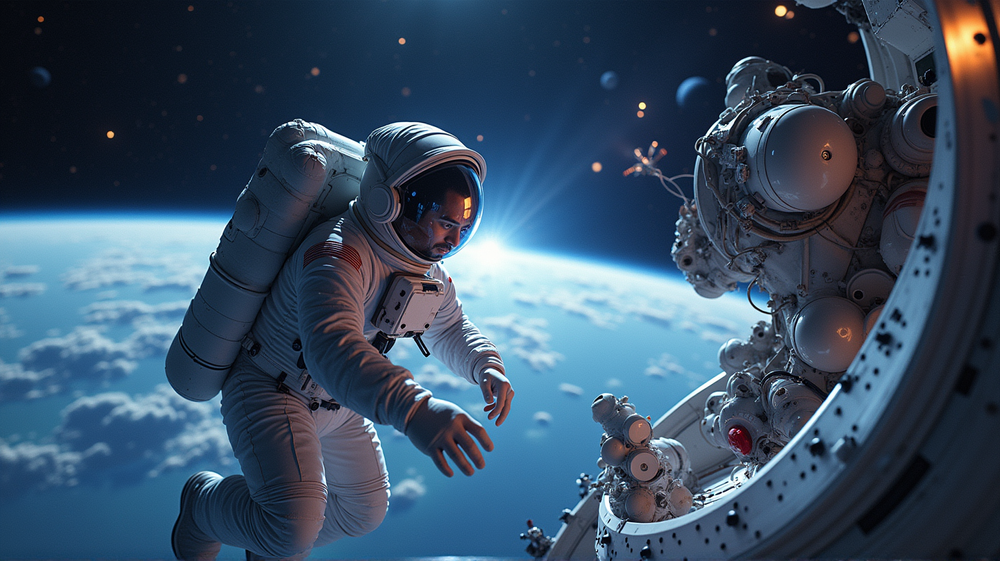Unveiling Microgravity’s Hidden Impact
In a remarkable journey aboard the International Space Station (ISS), astronaut Shubhanshu Shukla, part of the Axiom-4 mission, is unlocking the enigmatic effects of microgravity on human health. On the tenth day of the mission, Shukla focused intently on the crucial concept of bone deterioration in space – a phenomenon that has persisted as a major challenge for astronauts and, by extension, for treatments of osteoporosis back on Earth.
Expanding Boundaries with Radiation Research
Shukla, a native of Lucknow, is not only an ambassador of space’s vast potential but is also involved in riveting research into radiation exposure on ISS. This investigation is key for astronaut safety during prolonged space missions, promising enhanced protective measures against cosmic radiation, as stated in Deccan Herald.
Stalwart Team: A Synergy of Expertise
Alongside Shukla is a vibrant team on a 14-day mission piloted by Shukla with US astronaut Peggy Whitson, Hungarian Tibor Kapu, and Polish astronaut Slawosz Uznanski-Wisniewski. Together, they form a formidable alliance, striving to comprehend and overcome the onerous challenges posed by long-duration space flights.
The Marvel of Space Micro Algae
The mission takes a leap towards fostering sustainable life in space, with Shukla orchestrating the deployment of samples for the Space Micro Algae investigation. This brilliant initiative holds the promise of cultivating organisms that could provide nourishment, fuel, and fresh air, thereby revolutionizing life-support systems in space.
Creating a Digital Twin: A New Era of Health Screening
Space exploration meets genius as Axiom Space’s groundbreaking pursuit involves a “digital twin,” a virtual representation of the astronaut’s skeletal response to space conditions. This holistic approach could redefine astronaut health screening, accurately predicting risks and shaping customized counteractive strategies.
Breathing Life into Tardigrades and Beyond
Shukla’s journey also encompasses pioneering experiments on tardigrades, revealing their survival instincts in microgravity. These insights not only unravel biological resilience but also possess therapeutic potential right here on Earth, a venture proudly supported by ISRO.
Charting Progress in Space Science
With 60 awe-inspiring experiments slated, Shukla’s quest for celestial enlightenment is only just unfolding. As the mission progresses, Shukla and the Axiom-4 team continue to explore regenerative life-support systems and optimize human interaction with electronic systems in space, a testament to Earth’s unwavering resolve to traverse the cosmos.
The Axiom-4 mission stands as a beacon of human ingenuity, showing how cosmic insights today can translate into transformative advancements tomorrow. Whether it’s enhancing astronaut safety, eradicating bone maladies, or pioneering interstellar agriculture, the efforts aboard the ISS are truly expanding the horizons of human potential.












